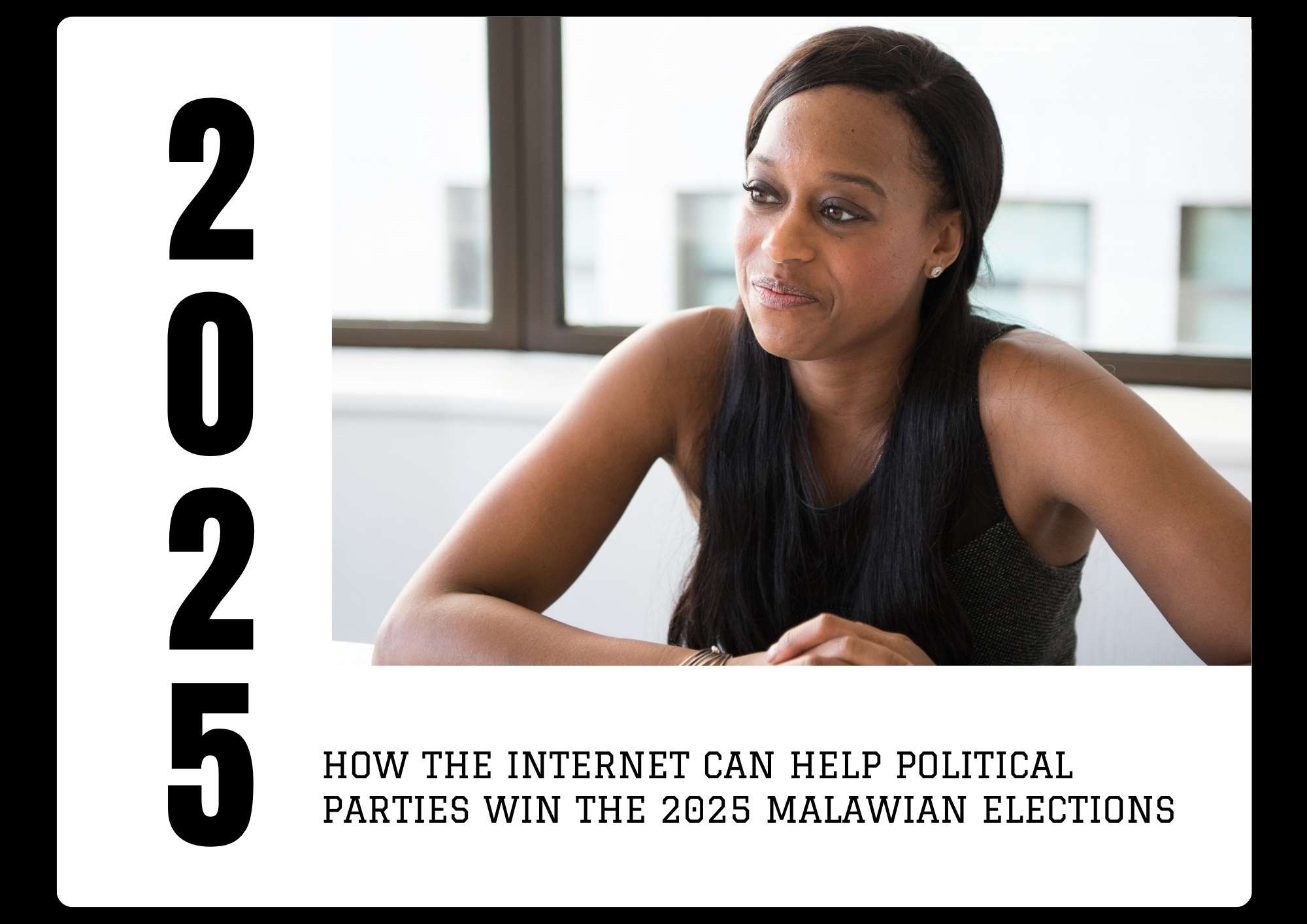
How the Internet Can Help Political Parties Win the 2025 Malawian Elections
The Internet has become an essential tool for political parties globally, and its potential to influence the 2025 elections in Malawi is particularly significant. By examining past elections in Malawi and drawing on international examples, this paper elucidates how political parties can effectively utilize the Internet to enhance their electoral strategies.
Historically, the use of digital platforms in Malawian elections has shown promising results. For instance, during the 2014 tripartite elections, social media played a crucial role in shaping public discourse and mobilizing voters. Political parties utilized platforms like Facebook and Twitter to communicate their messages and engage with constituents, which was instrumental in the opposition's success in that election (Patel & Wahman, 2015). This trend continued in the 2019 elections, where the digital landscape allowed for greater voter engagement and information dissemination, ultimately influencing the electoral outcome (Nyangulu & Sharra, 2023). The ability of political parties to reach a broader audience through these platforms can be leveraged in the upcoming 2025 elections to enhance voter turnout and support.
The effectiveness of social media as a campaign tool is further supported by international studies. Research from Ireland highlights how social media was used to mobilize and engage voters during the 2013 Meath East by-election, demonstrating that candidates effectively utilized platforms like Twitter and Facebook to connect with the electorate (Suiter, 2015). Similarly, the 2011 Danish general election showcased how politicians favored mass supportive behavior on Facebook, which aligned with their strategic goals during the campaign (Schwartz, 2015). These examples underscore the potential for Malawian political parties to adopt similar strategies, utilizing social media to foster a supportive online community and counter misinformation.
Moreover, the Internet enables real-time feedback and sentiment analysis, which can be invaluable for political parties in adapting their strategies. For instance, during the 2020 local elections in Indonesia, digital campaigns were assessed for their effectiveness based on public reactions, illustrating how online engagement can inform campaign strategies (Maryam et al., 2022). In Malawi, political parties can implement similar sentiment analysis tools to gauge voter reactions and adjust their messaging accordingly, ensuring they remain relevant and responsive to public concerns.
Additionally, the Internet provides a platform for grassroots mobilization, which is crucial in a participatory democracy. The role of digital campaigning in enhancing political participation has been documented in various contexts, including Malaysia, where communication technologies significantly shaped political discourse during the 2018 elections (Tapsell, 2018). In Malawi, political parties can harness the power of digital platforms to organize grassroots movements, thereby increasing their electoral base and fostering a more engaged electorate.
In conclusion, the Internet offers a multitude of opportunities for political parties in Malawi as they prepare for the 2025 elections. By leveraging digital platforms for engagement, communication, grassroots mobilization, and real-time feedback, parties can enhance their electoral strategies and improve their chances of success. Drawing on both local and international experiences, it is evident that the effective use of the Internet will be crucial for parties aiming to connect with voters and navigate the complexities of the electoral process.
References:
- Chilanga, E., Dzimbiri, M., Mwanjawala, P., Keller, A., & Mbeya, R. (2022). Religion, politics and covid-19 risk perception among urban residents in malawi.
- BMC Public Health, 22(1). https://doi.org/10.1186/s12889-022-13858-7 Lestari, L. (2023).
- A successful strategy of political party campaign ahead of election in developed countries. Jurnal Dimensi, 12(2), 399-421.
- https://doi.org/10.33373/dms.v12i2.5495 Maryam, S., Wahidin, D., & Zempi, C. (2022).
- Digital campaign to increase urban political participation (study on the 2020 pilkada in depok city).
- Proceedings of International Conference on Communication Science, 2(1), 605-613. https://doi.org/10.29303/iccsproceeding.v2i1.106
- Ngange, K. and Elonge, M. (2019). E-democracy in africa: assessing internet use by major political parties during elections in Cameroon.
- Advances in Journalism and Communication, 07(03), 55-73. https://doi.org/10.4236/ajc.2019.73004 Nyangulu, D. and Sharra, A. (2023).
- Agency and incentives of diasporic political influencers on facebook malawi. Social Media + Society, 9(2), 205630512311779.
- https://doi.org/10.1177/20563051231177936 Passi, K. and Motisariya, J. (2022).
- Twitter sentiment analysis of the 2019 indian election., 805-814. https://doi.org/10.1007/978-981-16-3945-6_79 Patel, N. and Wahman, M. (2015).
- The presidential, parliamentary and local elections in malawi, may 2014. Africa Spectrum, 50(1), 79-92.
- https://doi.org/10.1177/000203971505000106 Schwartz, S. (2015).
- Campaigning and contestation: comments on politicians’ facebook pages during the 2011 danish general election campaign.
- Social Media + Society, 1(2). https://doi.org/10.1177/2056305115622480 Suiter, J. (2015).
- Political campaigns and social media: a study of #mhe13 in ireland. Irish Political Studies, 30(2), 299-309.
- https://doi.org/10.1080/07907184.2015.1018899 Tapsell, R. (2018).
- The smartphone as the “weapon of the weak”: assessing the role of communication technologies in malaysia's regime change. Journal of Current Southeast Asian Affairs, 37(3), 9-29. https://doi.org/10.1177/186810341803700302
0 Comments